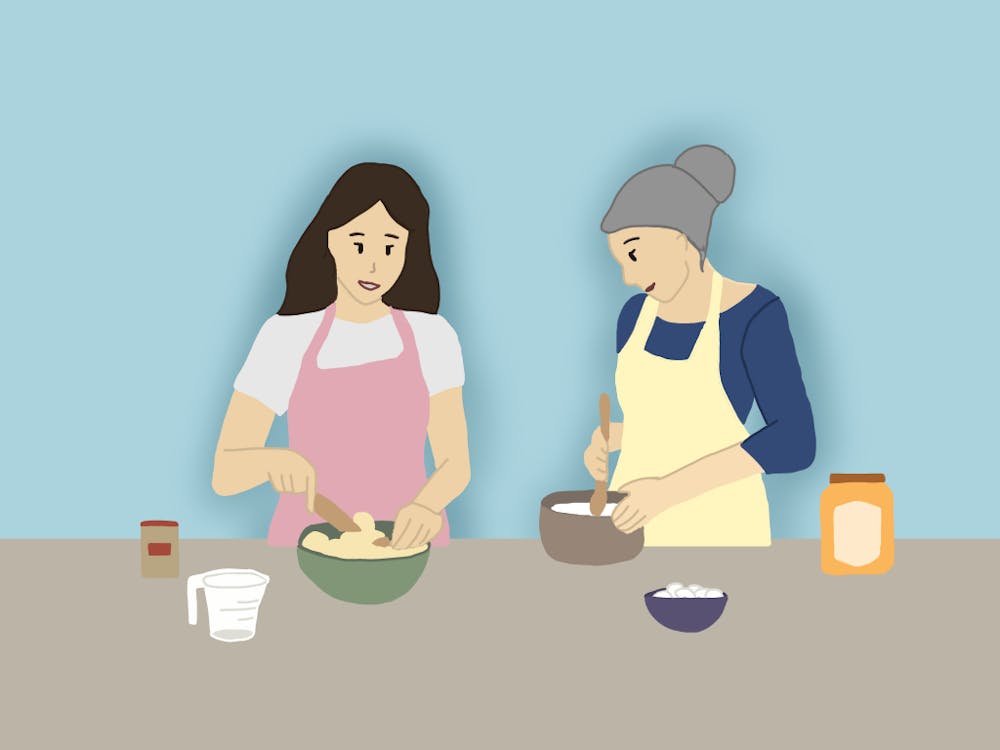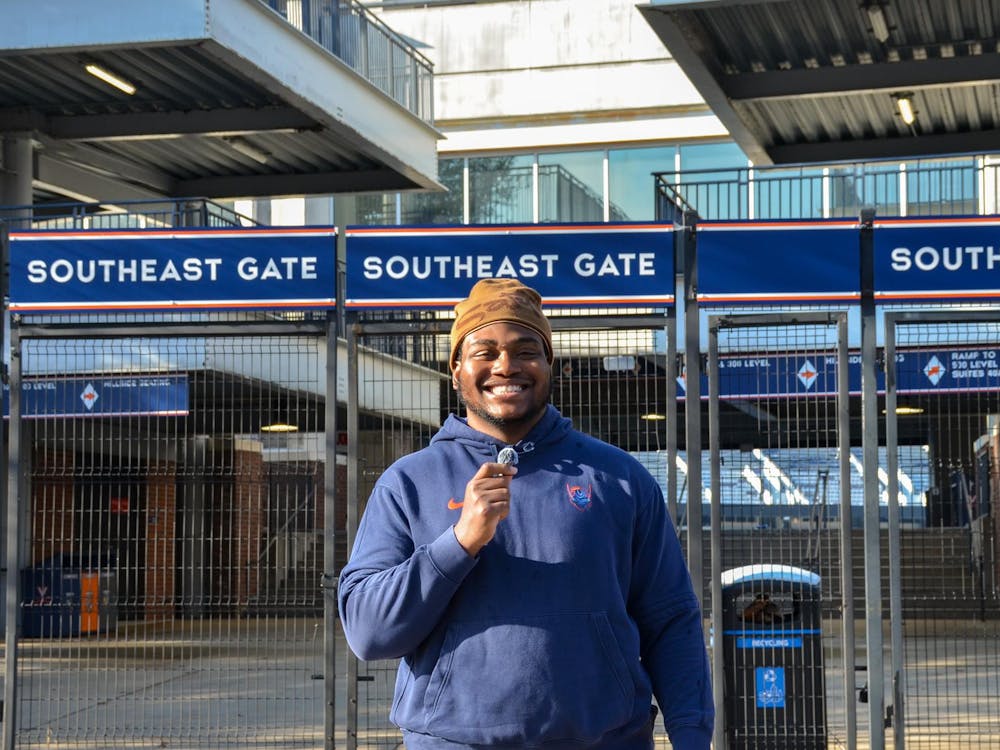Maybe it's the excitement of seeing a flurry of physicians bent over a patient in the emergency room. Or maybe it's the steady surgeons you've always had. But whatever the reason, many University students already have found their calling to the medical profession.
From pediatrics to gynecology to orthopedics, the medical interests of University students cover the entire spectrum.
Many students, however, come to the University with the intent of being pre-med and quickly realize that their interests and ambitions are leading them into a different field of study.
"A lot of kids want to find a niche and they declare pre-med," said Dean Glenn Cummings, director of pre-professional advising. "Between 30 and 40 percent of first-years call themselves pre-med, but by second year, it's less than half of that"
Like most colleges across the nation, the University does not have a pre-med major. Although most pre-med students major in either biology or chemistry, Cummings explained that medical schools don't necessarily favor those subjects.
"We have students in engineering, commerce and education," Cummings said. "The major that you choose when you're an undergraduate is not of great concern. You can be from any background"
Although a pre-med student's chosen major may not be of utmost importance, medical school hopefuls still must fulfill several pre-med requirements, including numerous semesters of calculus, chemistry, biology and physics.
Grades are also of great importance, Cummings said, and some students just don't make the cut.
"Some students don't get into medical school because it's very competitive," Cummings said. "Some may choose an alternative health profession -- physical therapy, dentistry, optometry or working as a physician's assistant"
With the understanding that declaring pre-med will bring countless hours of studying, steep competition and the dreaded MCATs, what is it about this area of study that brings so many eager minds to the University?
For fourth-year College student Laura Hickman, her original plans didn't include medicine.
"If you asked me first year what my post-college plans consisted of, I would have probably said something like counselor or psychologist," Hickman explained. "All I knew for sure is that I wanted to enter a career field in which I would be helping people and having one-on-one patient contact"
But a year later, Hickman's plans changed.
"My second year, one of my newborn cousins died of a rare biological disorder, and I dedicated my summer to doing clinical research on children with craniofacial anomalies," Hickman said. "I worked very closely with a plastic surgeon at the U.Va. Hospital and suddenly found myself excited by a career that I had never previously considered"
With graduation just on the horizon, Hickman now is anticipating a career as a primary care physician with a specialty in rural medicine.
"I'm not committing to any definite fields until I've completed clinical rotations in the third year of medical school," Hickman said. "But even if I do end up becoming interested in another field, I'd still like to dedicate a couple of months of the year to traveling to third-world countries and administering basic medical care"
For first-year College student JoAnn Blair, entering the medical profession has been her goal since her freshman year in high school. She now anticipates a career in pediatrics.
"My cousin, who is one year old, has Down's Syndrome -- Hirschspurng's disease," Blair said. "He has many complications and almost lost his life. Pediatric surgery saved him, and that's what I want to do"
Despite the intensity of the classes that await Blair in the near future, she already has committed herself to medicine.
"I've decided for me personally that I'm going to stick with pre-med no matter how difficult the classes get," she said.
For first-year College student Josh Hailey, the idea of being a doctor entered his mind at an early age.
OSince I was young, I've always kind of wanted to be a doctor, and part of that may have been the money," Hailey said.
"More recently, I've been thinking about why I really want to be a doctor. I coached swim team for two years and worked with kids. Being a coach kind of confirmed my decision. I enjoy working with kids and helping people"
Hailey lightheartedly added, "I've also thought about orthopedics because I've broken a few bones myself"
Once the four years of undergraduate study at the University are complete, students must start thinking about when and where to attend medical school.
Hickman said she plans to take a year off after graduation to do something non-science related, possibly working for a non-profit organization.
"I'd also like to move to North Carolina and establish in-state residency so that I will be able to attend medical school there with in-state tuition," Hickman said.
Third-year College student Lesley White also hopes to take at least one year off before attending medical school. White, who anticipates a career in the field of obstetrics and gynecology, has considered spending some time abroad.
"There's also a lot of one-year masters programs you can do," White added. "And there are a lot of places where you can volunteer"
Pre-med students do not, however, have to wait until graduation to begin volunteering in hospitals and clinics.
"As a pre-professional adviser, I would be neglecting my duties if I didn't encourage pre-med students to think beyond the classes that they're taking," Cummings said. "Courses can be quite large and pretty impersonal, and students often end up feeling dissatisfied"
Cummings suggested that students "get more involved in pre-med student groups and organizations and carve out some time to volunteer at local hospitals and clinics"
First-year College student Erin Fagg dedicates several hours a week to volunteering at University Hospital.
"I had hoped to be on the pediatric floor, but upperclassmen get priority," Fagg explained. "So I work in the Children's Health Museum"
Hickman also has volunteered in and around the University community. One summer she worked in a chiropractic clinic to gain basic patient contact skills. Through Madison House, she serves as a Big Sibling, and she also has volunteered in the Cancer Center at University Hospital.
"I think it's extremely important in medicine to work in volunteer settings to remind you of what it is you're working towards," Hickman said. "Otherwise, it can be all too easy to lose track of your long-term goals"
Once students graduate from the University and enter medical school, classes get harder, the workload increases and rotations eventually begin. Students may be well underway to a career in the medical profession, but for some, concerns about raising a family begin to arise. Where do kids fit into the picture, especially for the working mother?
Although Fagg has wanted to be a pediatrician since she was young, she recently began to think about dropping her pre-med status.
"I was thinking about the time commitment -- four years here, four years of med school, and then residency," Fagg said. "I'm really wife-mother-oriented so I wasn't sure when starting a family would fit in"
Fagg said that once she has kids, she would like to take a few years off to spend time with them.
"That's the most important thing that I have in place for my future -- my family," she said.
Hickman also has wrestled with the fact that medicine is such a time consuming profession.
"I want to have a family, and I want to be able to spend a large amount of time with them," she said. "I think what has helped to qualm these fears the most has been talking to women doctors and seeing how they have managed to balance their family life with their medical practice"
Pre-med students recognize that the path to a career in the medical profession is not always an easy one. But through their efforts and dedication, some of the University's finest students will soon be able to wear white coats with the letters "M.D" embroidered after their names.






